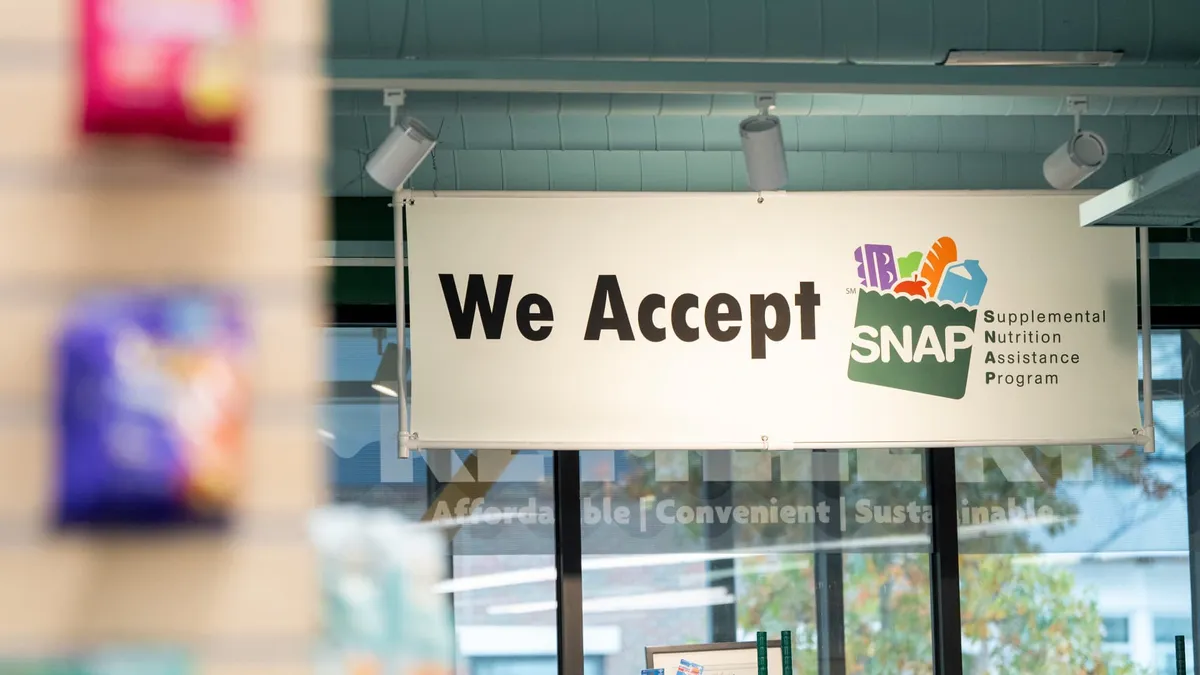
A federal judge has mandated that the Trump administration must provide full Supplemental Nutrition Assistance Program (SNAP) benefits for November by Friday. This decision comes as a direct response to the administration's controversial plan to only partially fund the vital food assistance program, affecting approximately 42 million Americans during the ongoing U.S. government shutdown.
During a hearing held in U.S. District Court in Rhode Island, Judge Jack McConnell emphasized the urgent need for full funding, stating, "People have gone without for too long." He pointed out that the administration must access funding sources that it had previously deemed off-limits earlier in the week. "The evidence shows that people will go hungry, food pantries will be overburdened, and needless suffering will occur if SNAP is not fully funded," McConnell remarked. He added, "That's what irreparable harm here means."
In an unprecedented situation, SNAP benefits lapsed for the first time in U.S. history just last weekend, highlighting the critical nature of the program. Judge McConnell noted that this was a problem that "could have and should have been avoided." The order to fully fund SNAP benefits follows pressure from plaintiffs who urged the judge to reject the administration's proposed plan for partial benefits.
The Trump administration had previously announced it would not utilize a congressionally authorized contingency fund totaling $4.65 billion to support the Supplemental Nutrition Assistance Program for the month of November. The total estimated cost for full SNAP benefits for this period stands at approximately $8 billion. Like other federal programs, SNAP currently lacks funding appropriations due to Congress's failure to approve a stopgap funding bill to reopen the U.S. government.
Historically, past presidential administrations have continued to provide SNAP benefits even during government shutdowns. In response to the administration’s refusal to fully fund the program, a coalition of cities, charitable organizations, unions, and business groups filed a lawsuit to compel the administration to utilize contingency funds and other financial resources for SNAP.
During a court hearing last Friday, Judge McConnell blocked the administration's attempts to halt SNAP benefits. He instructed the administration to promptly pay benefits from the contingency fund and explore whether additional funds could be accessed to ensure full program funding for November. Following this, the administration revised its funding plan, initially claiming it would provide 50% of the benefits, later increasing it to 65%.
Judge McConnell criticized the U.S. Department of Agriculture (USDA) for its decision not to tap into the so-called Section 32 funds to fully finance November’s SNAP payments, labeling the decision as "arbitrary and capricious." He stated, "USDA had an obligation, beginning Oct. 1, when the shutdown began, to prepare to use the contingency funds so that the recipients would get their benefits as expected on Nov. 1." McConnell argued that USDA's failure to act timely should not be an excuse for not providing necessary payments.
The ruling arrived just before another federal judge in Boston could consider a request from a coalition of around two dozen states seeking a similar order for the full funding of SNAP benefits. New York Attorney General Letitia James, whose state is a plaintiff in the Boston case, expressed relief at the ruling, stating, "A judge in Rhode Island just stopped the federal government from starving millions of Americans." She criticized the necessity of a lawsuit to ensure that the federal government fulfills its responsibility to feed its citizens.
As the situation develops, it remains crucial for the administration to comply with the court's order and ensure that all SNAP beneficiaries receive the vital support they need during this challenging time.